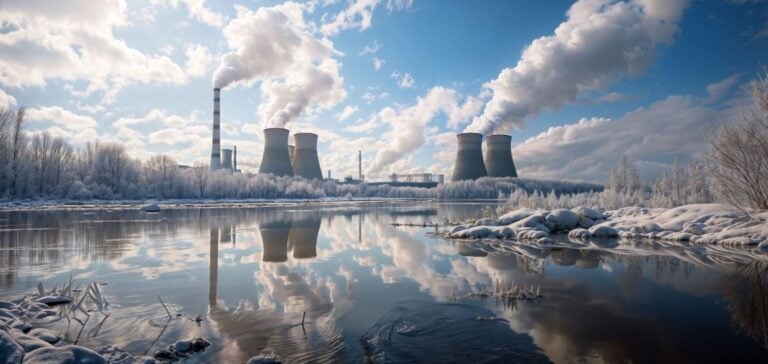Poland has recently signed significant agreements to strengthen its nuclear program with international partners, underscoring its intent to diversify its energy sources and increase its energy security. In a context of transition aimed at reducing coal dependency, cooperation with Japan and the Netherlands is strategic for developing the infrastructure and expertise necessary for expanding nuclear energy in Poland.
The cooperation between Poland and Japan was formalized by a memorandum of understanding signed by Marzena Czarnecka, Poland’s Minister of Industry, and Shinji Takeuchi, Japan’s Deputy Minister of Economy, Trade, and Industry, in Warsaw. This agreement, signed on November 7, aims to promote the development of nuclear technologies as solutions that contribute to energy transition goals while ensuring greater energy security for Poland. According to the Polish ministry, the agreement includes provisions to encourage collaborations between Japanese and European companies, particularly in the field of nuclear industrial technologies.
Partnership with Japan Atomic Industrial Forum
The memorandum includes collaboration with the Japan Atomic Industrial Forum International Cooperation Centre (JICC), a center operating under Japan’s Ministry of Economy, Trade, and Industry (METI). The JICC is involved in activities that support the skills development of countries implementing nuclear energy. These activities include information exchanges, expert missions, and the organization of workshops and seminars covering essential areas such as human resources development, social communication, nuclear safety, and the preparation of necessary infrastructure for nuclear projects.
For Poland, this collaboration offers an opportunity to acquire fundamental technical skills and knowledge crucial for implementing its national nuclear program. The Polish Ministry of Industry has emphasized that cooperation with Japan will help structure a base of nuclear competencies, a key element for achieving Poland’s project goals.
Cooperation Agreement with the Netherlands
On the same day, another cooperation agreement was signed between Poland’s National Atomic Energy Agency (PAA) and the Netherlands Authority for Nuclear Safety and Radiation Protection (ANVS). This agreement, signed by Andrzej Głowacki, PAA President, and Annemiek van Bolhuis, ANVS Chairperson, establishes a basis for the exchange of information and best practices regarding nuclear energy oversight for peaceful purposes.
This agreement also provides for joint activities such as technical meetings, training, and document exchanges essential for preparing nuclear regulators for the licensing process of new nuclear technologies. For both countries, the growing interest in the use of new nuclear technologies brings additional challenges for the national institutions responsible for their safe use.
Poland’s Long-Term Nuclear Projects
In September 2021, the Polish government unveiled an ambitious project aimed at developing the country’s nuclear capacity. The plan envisions constructing six large pressurized water reactors with a combined capacity of 6 to 9 gigawatts electric (GWe) by 2040, an effort to reduce reliance on coal. According to the adopted schedule, the construction of the first nuclear power plant is set to begin in 2026, with the first reactor – with a capacity of 1.0 to 1.6 GWe – expected to be operational by 2033. Subsequent units are to be constructed with an interval of 2 to 3 years.
The coastal sites of Lubiatowo and Kopalino, located in the Choczewo municipality in Pomerania province, have been designated as preferred locations for the country’s first large nuclear power plant. In November 2022, the Polish government also announced that this first plant in Pomerania would have a capacity of 3750 MWe, utilizing AP1000 technology from the U.S. company Westinghouse. An agreement outlining the plant’s delivery plan was signed last May by Westinghouse, Bechtel, and Polskie Elektrownie Jądrowe.
A Future Shaped by Partnerships and New Technologies
Poland is also planning the construction of a second nuclear plant in the Patnów-Konin region, with two APR1400 reactors supplied by South Korea. This new collaboration with international players such as Japan and the Netherlands strengthens Poland’s ability to meet the demands of an evolving energy market. The country seeks to diversify its energy sources while mastering advanced technologies to support its energy transition.





















